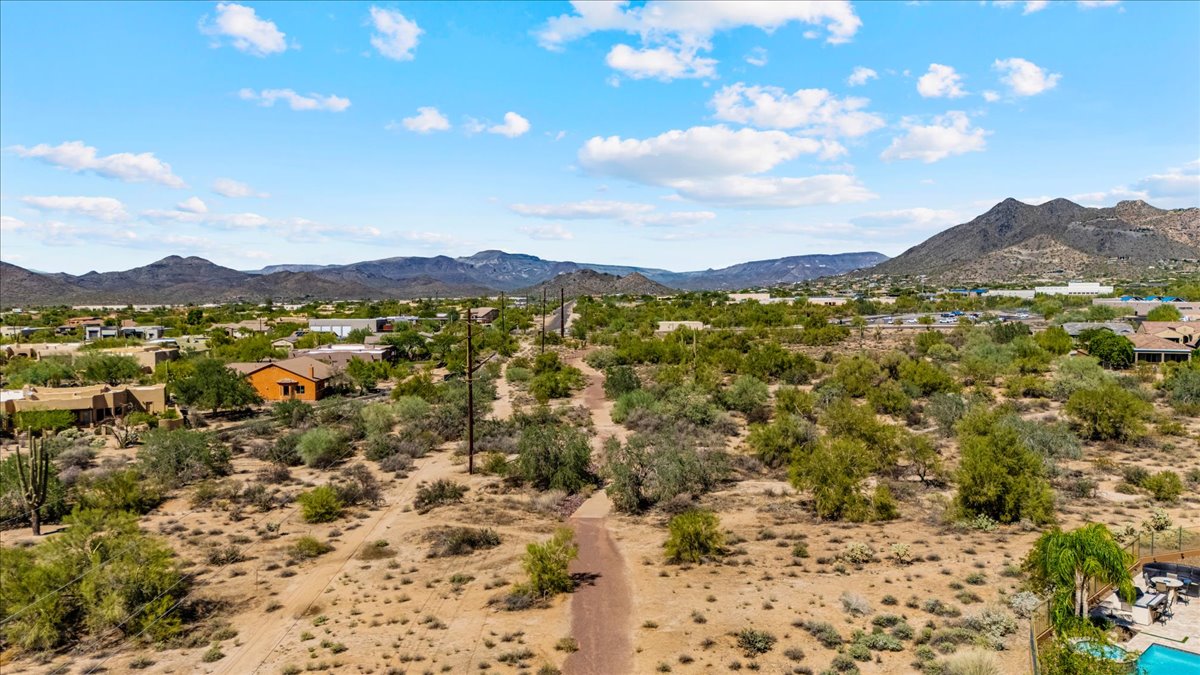Buying a home is an exciting adventure, and like any good journey, it starts with a little prep work. In Arizona, there are a few important documents buyers need to complete before touring homes or submitting an offer. Think of these as the “getting started” forms, step one in the home buying process.
These upfront documents are different from the paperwork you’ll see once you’re making offers and under contract where you’ll encounter the Residential Purchase Contract and things like inspection reports, seller disclosures, and title paperwork. For now, the focus is just on the essentials that get you in the door (literally).
(Quick note: I’m a Arizona licensed REALTOR®, not a lawyer. Nothing in this post is legal advice. If you’d like legal guidance about these forms, please consult with an attorney.)
1. Buyer-Broker Exclusive Employment Agreement
This is the big one. As of 2024, the National Association of REALTORS® settlement requires a written agreement between buyers and their agents before touring homes. This agreement keeps you compliant with the new rules and clearly spells out how your agent will represent you throughout the buying process.
Why it matters:
- Keeps you legally compliant under new rules
- Defines the working relationship so you know exactly what to expect
- Protects your best interests by making your agent’s duties and responsibilities official
Key thing to consider: Take time to review the agreement and ask questions so you feel comfortable with how it outlines representation and broker compensation.
2. Pre-Qualification Form (or Proof of Funds)
The Arizona Association of REALTORS® Pre-Qualification Form is completed by your lender and signed by both them and you. It shows that you’ve started the mortgage process and are financially positioned to buy. If you’re paying cash, a Proof of Funds letter from your bank works instead.
Why it matters:
- Gives sellers confidence that you’re a serious, qualified buyer
- Puts you in a stronger position when making an offer
- Saves time so you can move quickly if you fall in love with a home
Key thing to consider: The sooner this is ready, the better. A good buyer’s agent will often connect directly with your lender to help keep the process smooth.
3. Real Estate Disclosure & Election
This form explains the different types of agency relationships in Arizona (buyer’s broker, seller’s broker, or limited representation). It’s about transparency and making sure you know exactly who represents who in a transaction.
Why it matters:
- Clarifies that your agent is representing you, not the seller
- Helps avoid conflicts of interest
- Protects both sides by setting expectations
Key thing to consider: Read carefully and make sure you’re comfortable with how representation is explained. Again, ask as many questions as you can!
4. Market Conditions Advisory
The real estate market is always changing. This document explains that values can rise and fall, and that buyers and sellers make their own decisions about price, risk, and timing.
Why it matters:
- Reminds buyers and sellers that markets shift
- Acknowledges that real estate agents don’t provide financial, tax, or legal advice
- Encourages you to get advice from the right professionals if needed
Key thing to consider: Use this as a reminder to think about your own risk tolerance and financial goals.
5. Wire Fraud Advisory
Wire fraud is unfortunately a real risk in real estate. Criminals target buyers and sellers by sending fake wire instructions. This advisory explains how to spot and avoid scams.
Why it matters:
- Protects your funds by warning against fraudulent wiring instructions
- Advises you to always verify instructions with your escrow officer by phone
- Emphasizes that once money is wired to a scammer, it’s often unrecoverable
Key thing to consider: Never trust wiring instructions received by email. Always verify over the phone using a trusted number.
6. Buyer Advisory
The Buyer Advisory is a resource created by the Arizona Association of REALTORS® and the Arizona Department of Real Estate. It’s designed to give buyers an overview of common issues to be aware of when purchasing a home in Arizona. It covers everything from documents you may want to review, to the condition of the property, to factors in the surrounding area like schools, traffic, or environmental concerns.
Why it matters:
- Helps you understand what you may want to investigate during your home search
- Outlines potential property issues, from roof condition to water supply to neighborhood details
- Reminds you that professional inspections are essential and there’s no substitute for them
Key thing to consider: The Buyer Advisory is a helpful guide, but it’s not a substitute for doing your own due diligence or getting expert advice. A good buyer’s agent will point you to this document as a starting place, but you should also rely on qualified inspectors, legal professionals, and your own research to feel confident in your decision.
Why Having These Documents Ready Helps You Win
- Compliance: The Buyer-Broker Agreement is required by law under the new NAR settlement
- Confidence: Pre-Qualification and Proof of Funds give sellers peace of mind
- Speed: Having everything ready means you can submit an offer right away without delays
- Protection: Disclosures and advisories make sure you’re fully informed about risks and responsibilities
What Comes Next
These forms are just the starting line. Once you find a home and are under contract, there will be more documents to review such as inspection reports, seller disclosures, and title paperwork. Each step has its own purpose, and a good buyer’s agent will walk you through them so nothing feels overwhelming.
Final Thoughts
Getting these upfront documents signed is the first step in the home buying process in Arizona. They protect you, keep you compliant, and help you move quickly when you’re ready to make an offer. From there, the process continues step by step until you’re holding the keys to your new home.
A good buyer’s agent will make sure you understand what each document means, answer your questions, and help you feel comfortable. If you’d like legal advice beyond your agent’s role, it’s always best to consult with a qualified attorney.







Comments +